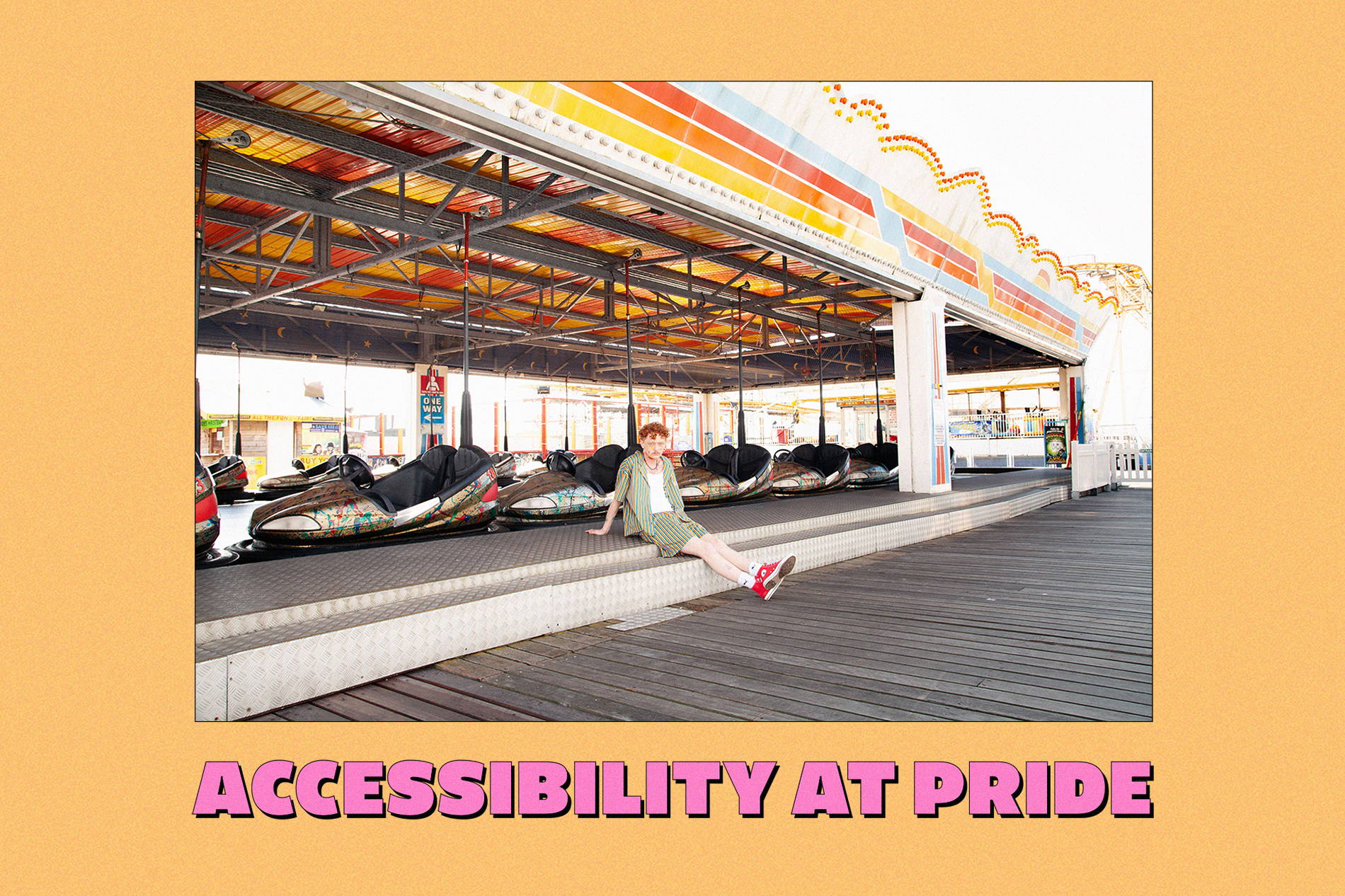Az Franco (@youcancallmeaz)
Pride month is a celebration of queer resilience and resistance. A time for the LGBTQ+ community to collectively rejoice in self-acceptance. Pride is also a great opportunity for LGBTQ+ allies to show their encouragement and support for inclusivity.
Amongst the LGBTQ+ community, it is estimated that more than one-third identify as disabled (Respectability. 2022). This includes invisible disabilities like those with learning difficulties and those who are neurodivergent. Despite this high percentage, during Pride celebrations across the globe, “accessibility is often an afterthought” (Annie Segarra, CNN. 2019). According to a disability rights activist interviewed for Politico, 2022, accessibility is still “something we do, rather than something that is integral to who we are.” This does not align with the values of inclusivity and diversity within the LGBTQ+ community. Inaccessibility = exclusivity.
True inclusivity means making Pride accessible to all people. LGBTQ+ safe spaces in cities are already a minority (Politico, 2022). For a community who are so regularly discriminated against, these spaces are of utmost importance. “If you can’t even access those spaces, then you’re completely excluded… you’re a double minority” (Disability Activist, Politico, 2022.)
Pride celebrations are highly inaccessible to wheelchair users. Parades are lengthy and often the routes are unchanging. Many stages are inaccessible. There is a lack of seating options. Uneven ground, steep inclines and cobbled streets all create barriers for people with limited mobility (CNN, 2022). Beyond these physical factors, Pride can be an overload of sensory stimulation for people with autism or ADHD (CNN, 2022). Strobe lights and smoke machines are often used during performances. There is a lack of sign language interpretation. Uncrowded and quiet areas are hard to find. This excludes many people from enjoying the celebrations.
Beauty expectations at Pride can also create barriers for disabled and neurodivergent people. Pride is a great opportunity to showcase individuality through fashion. Yet, the expectation to dress in a certain way can be extremely challenging for those with sensory issues, or those with physical disabilities. The expectation to wear something ‘new’ or ‘different’ at Pride often causes anxiety and financial stress. Fast fashion is unsustainable and costly. “Accessibility is an LGBTQ+ issue” (Pride In Surrey). There are major changes that need to be encouraged and introduced, in order to make Pride a more comfortable experience for people all over the world.
Alternative locations where fewer people are crowded, for example picnics and street parties, offer a far less stimulating experience. Alternative and/or shorter parades are also a great option for those with limited mobility. More seating areas must be available during all Pride events. At least one smoke and strobe free tent would allow people with sensory issues to enjoy the music. Free earplugs and water should be available at all times. A free shuttle service between locations in big cities would be hugely beneficial for people with limited mobility. Sign language interpreters need to be present at all Pride events. More volunteer stewards should be available to help guide people to quiet spaces.
Fewer expectations need to be placed on what people wear during Pride celebrations. Sustainability and comfort are both fundamental. We need to normalize re-wearing outfits. We need to normalize comfort over fashion. We need to be aware of the barriers many disabled and neurodivergent people face when it comes to choosing clothing and feeling comfortable in it.
“Making these adjustments is key to acknowledging the existence - and the needs - of a minority within the LGBTQ+ community” (Politico, 2022). It is key in supporting those who already face discrimination and marginalization at a greater degree than the rest of the LGBTQ+ community. We need more understanding around invisible disabilities. We need accessible spaces.
There are ways in which we can all help, on a small scale, this Pride month.



